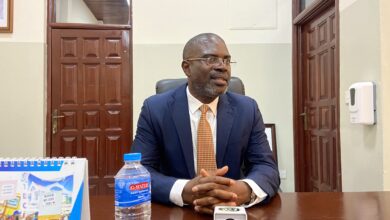
President Akufo-Addo faces a significantly more challenging environment during his second term. His success hinges on his government’s ability to guide Ghana toward debt sustainability and secure an agreement with external creditors for debt restructuring under the IMF program.
After experiencing macroeconomic crises in 2022, Ghana saw some economic improvements in 2023. However, persistent challenges remain, particularly high inflation, subdued growth, and considerable pressure on public finances and debt sustainability.
Under the New Patriotic Party (NPP), the country encountered severe external shocks that intensified existing fiscal and debt vulnerabilities. This has resulted in constrained access to international markets, limited domestic financing options, and increased reliance on monetary measures to support government expenditures.
Currently, Ghana is in debt distress, with public debt deemed unsustainable. In response, the government has initiated a comprehensive debt restructuring plan, significant fiscal consolidation measures, and reforms aimed at fostering economic stability and resilience.
The Economic Intelligence Unit (EIU) forecasts that voters may oust the NPP in favor of the National Democratic Congress (NDC), the main opposition party, in the 2024 elections.
As Ghana navigates external debt restructuring, creditor confidence will be bolstered by an ongoing three-year, $3 billion extended credit facility with the IMF (2023-26). However, public dissatisfaction with deteriorating living conditions due to high inflation is likely to incite sporadic unrest. Economic growth is expected to remain subdued in 2024, hampered by persistent inflation and fiscal tightening, though growth could rebound in 2027-28, driven by increased gold and oil exports as new projects come online.
Ghana is currently experiencing turbulent times characterized by political instability, demonstrations, severe economic hardship, and corruption—issues that can affect any country. These challenges may arise from long-standing grievances or emerge rapidly from a single incident, sometimes leading to violence, posing risks for those caught in the turmoil.
Political instability can disrupt not just local or regional stability but also have global repercussions, impacting nations and corporations worldwide. The rapid pace of modern life and the unpredictability of domestic and international developments mean localized events can have extensive consequences.
Failures of diplomacy and governance in Ghana, coupled with the accessibility of information and communication, contribute to this instability. Political turmoil often results from conflicts or struggles among various parties, leading to rapid changes in government and policy that heighten the risk of subsequent instability.
Economic growth and political stability are closely interconnected. An unstable political environment can deter investment and slow economic development. Moreover, poor performance by the NPP could lead to government collapse and political unrest, exacerbating labor disputes.
Democratic and other political regimes are inherently fragile. Conflict, radical changes, and corruption can destabilize governments, sometimes leading to collapse through either peaceful or violent means. Such upheaval can occur gradually or swiftly, often creating significant disruption to daily life and fostering conditions conducive to terrorism and crime.
In today’s world, rapid shifts in previously stable governments can create dangerous situations, particularly in areas once considered safe. This unpredictability can also jeopardize transportation links and threaten the safety of individuals caught in political turmoil.
Story by: Alexander Kukah




